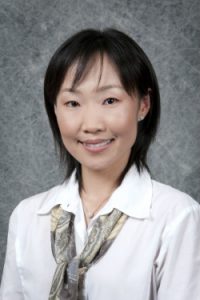
TUSCALOOSA, Ala. — An assistant professor at The University of Alabama is seeking to identify the factors creating growing disparities in mental health care across the country.
Dr. Giyeon Kim, assistant professor of psychology at the UA Center for Mental Health and Aging, received a $573,000 career development grant from the National Institute on Aging/the National Institutes of Health to pinpoint the geographic factors contributing to racial/ethnic disparities in mental health care at the regional, state and county level. The grant period runs through May 2018.
“I’m hoping to understand how race/ethnicity and geographic factors interact to produce disparities in access to mental health care,” Kim said. “I expect to find certain minority groups would be more vulnerable depending on where they live. Location itself could impact their access to mental health care, but certain state mental health policies could also be a factor.”
Kim will use publicly available national data sets from the Centers for Disease Control and Prevention, Behavioral Risk Factor Surveillance System and Collaborative Psychiatric Epidemiology Surveys and merge that information with U.S. census data to effectively study local to national levels.
Kim recently published a paper in which she looked at racial disparities in mental healthcare access, focusing on older whites and blacks. Kim found that blacks in the South are less likely to use mental health services than whites. Lack of trust in the healthcare system and low income might have been factors that contribute to the disparity.
“There are a lot of factors for the disparities, when studying it at a national level,” Kim said. “The percent of minority population in county, percent below poverty in a county, number of mental health specialists in a county, mortality rate at the state level, high school graduation rates at the state level, etc. Given the complexity of the issue, this study will take time, but the eventual goal is to have cutting-edge research in the intersection of aging, mental health and geography to find ways to eliminate or reduce the disparities.”
“This is just the starting point.”
Kim’s internal mentoring team includes Dr. Patricia Parmelee, professor of psychology and director of UA’s Center for Mental Health and Aging, as primary mentor; Dr. Martha Crowther, associate professor of psychology, as co-mentor; Dr. J. Michael Hardin, dean of The Culverhouse College of Commerce and Business Administration, Dr. Joe Weber, associate professor of geography, and Dr. Jason Parton, assistant research professor of statistics, will assist with development of a program of study.
Contact
David Miller, media relations, 205/348-0825, dcmiller2@ur.ua.edu
Source
Dr. Giyeon Kim, assistant professor of psychology, 205/348-7517, giyeon.kim@ua.edu